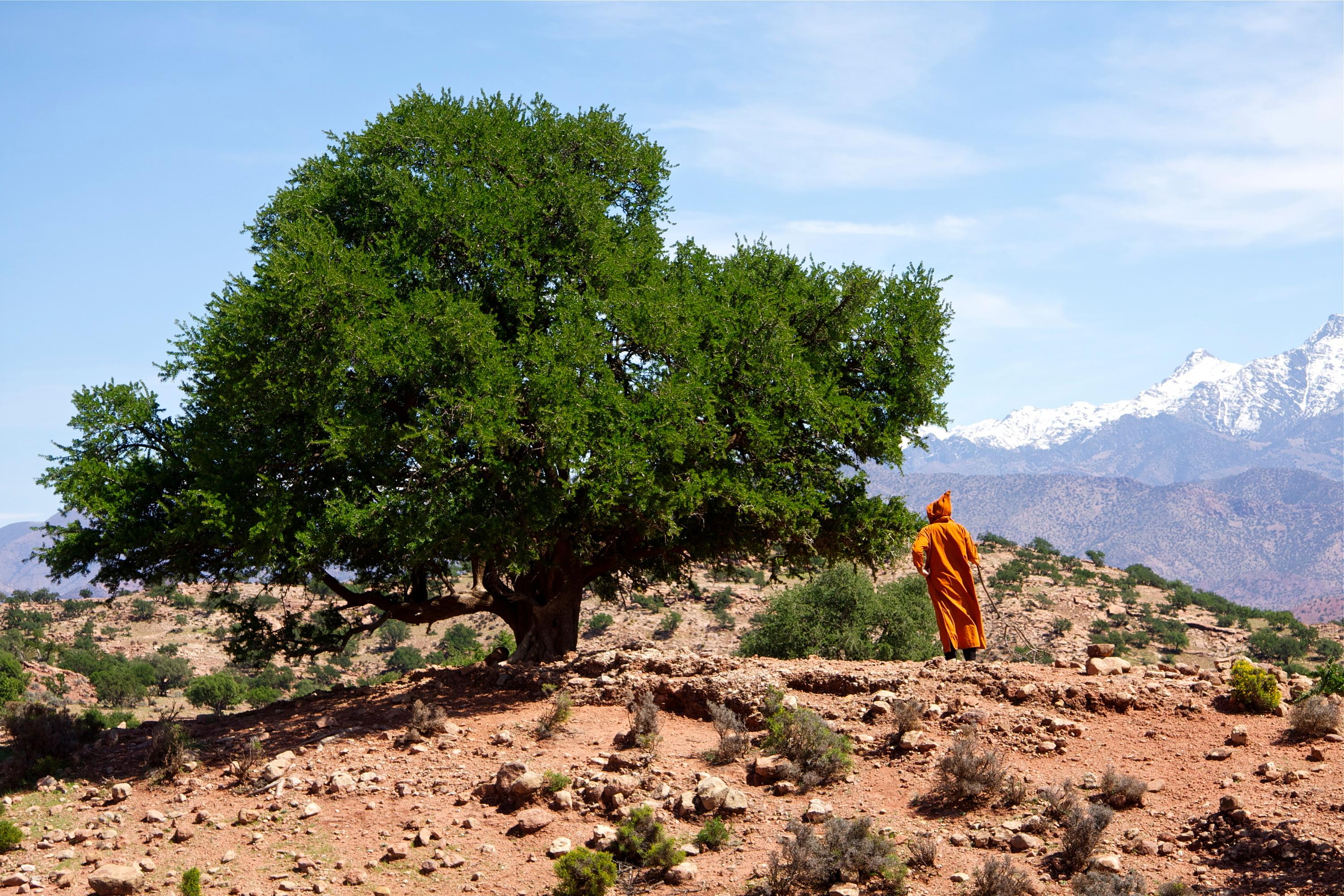Reducing dependence on China – that has now become one of the main goals of German economic policy. But companies are also feeling increasing pressure to look for alternatives, especially since the regime in Beijing has been forcing the country into an endless loop of lockdowns with its zero-Covid policy, thus paralyzing production in many places. But the question remains: What is the alternative?
The Federation of German Industries (BDI) now wants to focus more on Africa. This emerges from a 40-page position paper that the association has just created and that WELT is available in advance.
In it he advocates a restart of cooperation with the countries of the continent, especially those south of the Sahara, and he gives 39 concrete recommendations for action, for German companies, but also for the German government and the EU. However, these cannot eliminate the serious problems that stand in the way of increased trade with the African states.
"For Germany, Africa is becoming increasingly important economically in order to diversify more and reduce dependencies, especially on China," says Wolfgang Niedermark, member of the BDI's executive board. "Africa is a must for German companies today - and no longer just a continent of opportunity."
Noble words, but these could soon be followed by real deeds: The German-African Economic Summit will take place in South Africa from December 6th to 8th. The BDI is involved in the organization of the summit together with other umbrella organizations and has now prepared its position paper in good time.
The BDI sees three essential fields of action in this. For example, Germany and Europe should support African states in implementing the Pan-African Free Trade Area (AfCFTA). 54 of the 55 countries on the continent formally belong to this, but implementation has so far been difficult.
The World Bank assumes that this free trade zone could increase intra-African trade by 81 percent and exports by 19 percent overall. And a functioning free trade zone would also make the continent more attractive for German investments. Because that would create a market with 1.3 billion people and an economic output of around 3.4 trillion dollars - that would be comparable to India.
The second area that the BDI is targeting is cooperation in the area of raw material supply, especially metals and green hydrogen. "The federal government should support companies' efforts to create new raw material partnerships and expand investment guarantees and Hermes coverage," says Niedermark.
Raw materials such as cobalt, lithium or the platinum group metals are important for electromobility, digitization and Industry 4.0, and African countries have large amounts of these resources. According to the BDI, the aim should be to create a win-win situation: sustainable extraction and processing of raw materials on site and security of supply for German companies.
The BDI sees a third important area in cooperation when using new technologies. "Internet from space can network remote regions faster and better and enables greater participation in global value chains," Niedermark cites as an example. "Germany should work in Brussels to ensure that the planned EU satellite constellation also covers the African continent."
After all, digitization is also crucial for economic progress in Africa. Among other things, satellite data could improve agricultural production, and environmental disasters such as forest fires could be identified and fought more quickly. But digital solutions could also increase tax revenues and fight corruption.
The latter, however, is the biggest problem that German companies face in Africa. This is shown by a BDI survey of its members, who named corruption as the top priority. Other major problem areas include political instability, bureaucratic hurdles and the lack of skilled workers.
For the World Bank, too, a functioning state apparatus is a central challenge for these countries - and at the same time the decisive prerequisite for economic progress. "It has been proven that improvements in the systems for managing public investments - more specifically the institutions and processes responsible for planning, allocating and implementing public investments - bring great economic benefits," she writes in a recent analysis of the economic potential of the continent.
Above all, however, the experts at the World Bank are convinced that a diversification of trade structures can also help Africa, after all many countries there are very one-sidedly dependent on trade with China. Diversification of trading partners could increase knowledge transfer.
"It also puts exporters in contact with an expanded range of potential buyers with different consumer preferences, legal frameworks and business practices."
This would make increased trade between Germany and Africa a win-win situation – all the more so if the African free trade area could be strengthened. Because then Africa would have a strong voice and could thus ensure that it can act on an equal footing in trade relations. The first step towards this can be taken in South Africa next week.
"Everything on shares" is the daily stock exchange shot from the WELT business editorial team. Every morning from 7 a.m. with the financial journalists from WELT. For stock market experts and beginners. Subscribe to the podcast on Spotify, Apple Podcast, Amazon Music and Deezer. Or directly via RSS feed.

 New York: at Columbia University, the anti-Semitic drift of pro-Palestinian demonstrations
New York: at Columbia University, the anti-Semitic drift of pro-Palestinian demonstrations What is Akila, the mission in which the Charles de Gaulle is participating under NATO command?
What is Akila, the mission in which the Charles de Gaulle is participating under NATO command?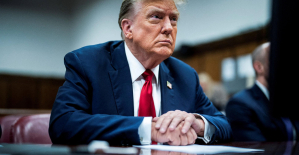 Lawyer, banker, teacher: who are the 12 members of the jury in Donald Trump's trial?
Lawyer, banker, teacher: who are the 12 members of the jury in Donald Trump's trial? After 13 years of mission and seven successive leaders, the UN at an impasse in Libya
After 13 years of mission and seven successive leaders, the UN at an impasse in Libya What High Blood Pressure Does to Your Body (And Why It Should Be Treated)
What High Blood Pressure Does to Your Body (And Why It Should Be Treated) Vaccination in France has progressed in 2023, rejoices Public Health France
Vaccination in France has progressed in 2023, rejoices Public Health France Food additives suspected of promoting cardiovascular diseases
Food additives suspected of promoting cardiovascular diseases “Even morphine doesn’t work”: Léane, 17, victim of the adverse effects of an antibiotic
“Even morphine doesn’t work”: Léane, 17, victim of the adverse effects of an antibiotic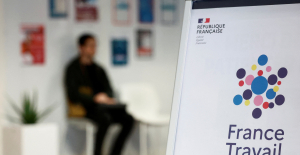 Unemployment insurance: tightening of the rules on July 1
Unemployment insurance: tightening of the rules on July 1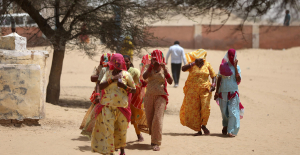 Cancers, chronic diseases... Billions of workers hit by climate change, warns the UN
Cancers, chronic diseases... Billions of workers hit by climate change, warns the UN Closure of the A13 extended until at least mid-week
Closure of the A13 extended until at least mid-week Closure of the A13: Pécresse “asks the State to take charge of making the A14 free”
Closure of the A13: Pécresse “asks the State to take charge of making the A14 free” The series adaptation of One Hundred Years of Solitude promises to be faithful to the novel by Gabriel Garcia Marquez
The series adaptation of One Hundred Years of Solitude promises to be faithful to the novel by Gabriel Garcia Marquez Racism in France: comedian Ahmed Sylla apologizes for “having minimized this problem”
Racism in France: comedian Ahmed Sylla apologizes for “having minimized this problem”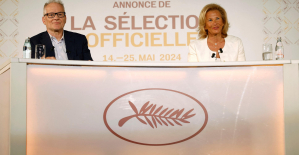 Mohammad Rasoulof and Michel Hazanavicius in competition at the Cannes Film Festival
Mohammad Rasoulof and Michel Hazanavicius in competition at the Cannes Film Festival UK lends Ghana treasures stolen during colonization
UK lends Ghana treasures stolen during colonization Skoda Kodiaq 2024: a 'beast' plug-in hybrid SUV
Skoda Kodiaq 2024: a 'beast' plug-in hybrid SUV Tesla launches a new Model Y with 600 km of autonomy at a "more accessible price"
Tesla launches a new Model Y with 600 km of autonomy at a "more accessible price" The 10 best-selling cars in March 2024 in Spain: sales fall due to Easter
The 10 best-selling cars in March 2024 in Spain: sales fall due to Easter A private jet company buys more than 100 flying cars
A private jet company buys more than 100 flying cars This is how housing prices have changed in Spain in the last decade
This is how housing prices have changed in Spain in the last decade The home mortgage firm drops 10% in January and interest soars to 3.46%
The home mortgage firm drops 10% in January and interest soars to 3.46% The jewel of the Rocío de Nagüeles urbanization: a dream villa in Marbella
The jewel of the Rocío de Nagüeles urbanization: a dream villa in Marbella Rental prices grow by 7.3% in February: where does it go up and where does it go down?
Rental prices grow by 7.3% in February: where does it go up and where does it go down? Europeans: “All those who claim that we don’t need Europe are liars”, criticizes Bayrou
Europeans: “All those who claim that we don’t need Europe are liars”, criticizes Bayrou With the promise of a “real burst of authority”, Gabriel Attal provokes the ire of the opposition
With the promise of a “real burst of authority”, Gabriel Attal provokes the ire of the opposition Europeans: the schedule of debates to follow between now and June 9
Europeans: the schedule of debates to follow between now and June 9 Europeans: “In France, there is a left and there is a right,” assures Bellamy
Europeans: “In France, there is a left and there is a right,” assures Bellamy These French cities that will boycott the World Cup in Qatar
These French cities that will boycott the World Cup in Qatar Basketball (F): big winner of Asvel, Basket Landes will face Tarbes in the semi-final of the League
Basketball (F): big winner of Asvel, Basket Landes will face Tarbes in the semi-final of the League Football: Yazici (Lille) “in shock” after an attempted theft at his home
Football: Yazici (Lille) “in shock” after an attempted theft at his home Serie A: victorious over AC Milan, Inter crowned Italian champions for the 20th time
Serie A: victorious over AC Milan, Inter crowned Italian champions for the 20th time Serie A: “Winning a title in a derby has never happened,” relishes Martinez after Inter’s coronation
Serie A: “Winning a title in a derby has never happened,” relishes Martinez after Inter’s coronation




